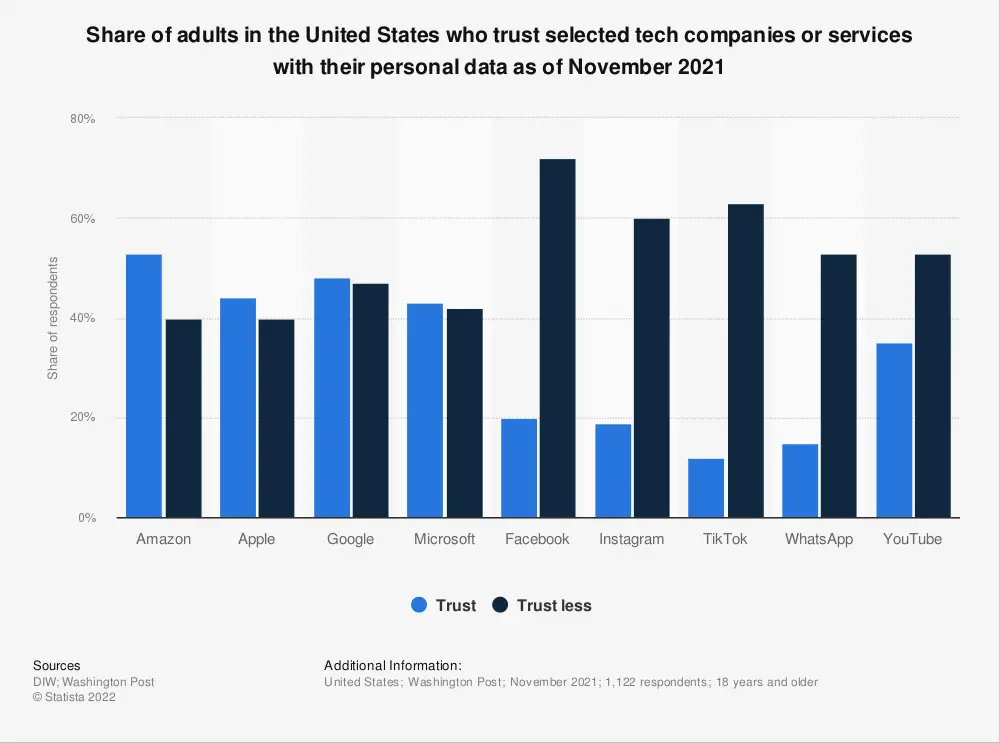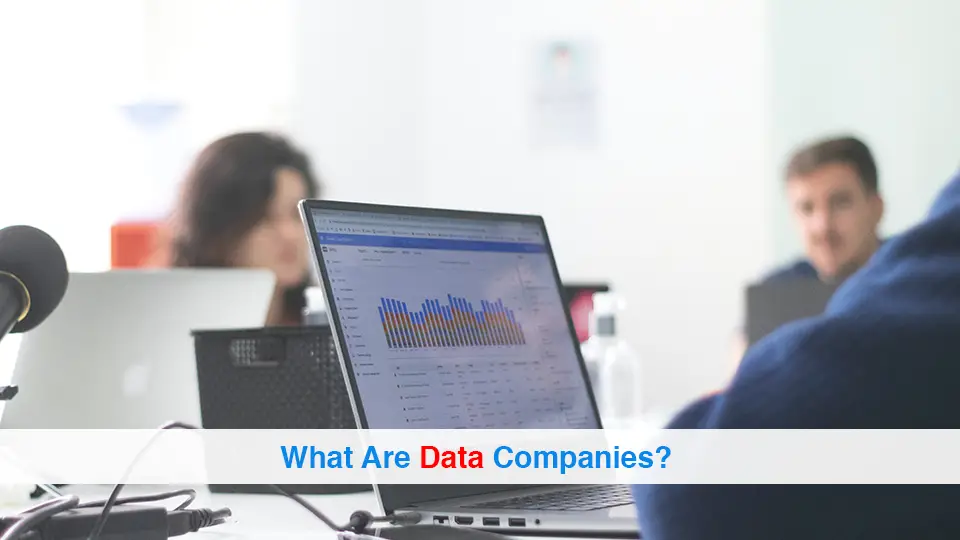In the modern digital age, data companies have become a vital part of many industries. These organizations help businesses make sense of their data, analyze it for trends and insights, and identify areas for improvement.
In order to understand what these companies do for businesses and how they work, let’s take a look at some of the services they offer.
Data Analysis Services
Data companies provide analysis services that help businesses make better decisions. This includes developing models and algorithms to predict customer behavior, analyzing customer demographics and preferences, and identifying areas for improvement within an organization.
They also provide data visualization services that allow businesses to quickly visualize complex datasets in a meaningful way. Additionally, they can help with predictive analytics by using machine learning algorithms to predict future events or outcomes.
Data Security Services
Data companies also offer security services that ensure the safety and integrity of a business’s data. This includes monitoring systems for potential threats such as hackers or malware, as well as creating secure backups of critical data in case of an emergency.
They can also assist with compliance regulations such as GDPR, CCPA, HIPAA, and others to ensure businesses remain compliant with all applicable laws and regulations.
Data Management Services
Finally, data companies provide management services that help businesses manage their data more efficiently. This includes designing databases and setting up storage solutions that are optimized for performance, scalability, and cost-effectiveness.
They can also assist in developing processes for collecting, organizing, storing, and analyzing large amounts of data so it can be used more effectively in decision-making.
Data companies are essential partners for many businesses today as they provide valuable services that enable them to make better use of their data assets.
By offering analysis services to uncover insights from existing data sets; security services to protect against threats; and management services to store and utilize data more efficiently; these organizations play an important role in helping businesses unlock the full potential of their resources while ensuring their operations remain safe and secure at all times.
For any business looking to maximize the value of its assets while mitigating risks associated with managing large amounts of sensitive information should consider partnering with a reputable firm specializing in this field.
How Are Data Companies Different From Other Businesses?
With the rise of data-driven companies, it’s important to understand what sets them apart from traditional businesses. Data companies have a unique set of opportunities, challenges, and requirements that allow them to leverage data as an asset.
Let’s take a look at how data companies are different from other businesses.
Data Quality and Accessibility
Data companies are built upon their ability to access and utilize large amounts of high-quality data. Traditional businesses may need to collect data from customers or vendors in order to operate; however, they typically do not acquire large amounts of external data.
For example, a retail store might use customer information like demographics and purchase history for marketing purposes. However, they may not have access to external datasets such as economic indicators or weather patterns that can be used for forecasting or trend analysis.
Data companies have an advantage in this area because they can access large amounts of external data that can be used for predictive analytics or machine learning algorithms.
Analytics Capabilities
Data-driven companies also possess advanced analytics capabilities that enable them to make decisions informed by data rather than intuition alone. This means they can quickly identify patterns in their datasets that allow them to develop innovative products and services or optimize existing offerings.
Traditional businesses often lack these capabilities because they don’t necessarily have the resources or technical expertise necessary to build out robust analytics infrastructures. As a result, these companies rely on more traditional methods, such as surveys or market research when making decisions about their products and services.
Business Model Evolution
Finally, it is important to note that data companies are constantly evolving their business models in order to remain competitive in the marketplace. As new technologies emerge, these companies must find ways to incorporate them into their offerings so that they remain ahead of the curve with regard to customer expectations and industry trends.
On the other hand, traditional businesses tend to stick with more established business models since there is less risk associated with doing so, they know what works for them and don’t necessarily feel compelled to explore new technologies unless absolutely necessary.
How Do Data Companies Use Personal Information?
Data companies have become increasingly important in the digital age, and there is much discussion about how these companies use personal information.
What Type Of Information Do Data Companies Collect?
Data companies typically collect a wide variety of information from users, such as age, location, gender, interests, browsing habits and purchases. This helps them to understand their target audience better and create targeted marketing campaigns that are tailored to each segment of users.
In addition to demographic data, data companies also collect behavioral data, which includes activities such as page views or searches on a website. They also use cookies to track user activity across multiple sites.
Data companies may also use third-party services such as Google Analytics or Facebook Ads to collect detailed information about user behavior on their websites or apps. This includes what pages users visit most often and which links they click on.
The use of cookies allows data companies to track user activity over time and build up detailed profiles of individual users’ preferences and behaviors. This can be used to deliver content that is more relevant to each user based on their past actions or interests.
How Do Data Companies Use Personal Information?
Data companies use the personal information they gather to better understand their target audience and develop more effective marketing strategies. By analyzing the demographic data collected from users (such as age range or gender), they can create more targeted campaigns that are tailored towards specific segments of users.
With behavioral data, they can further refine their marketing strategies by understanding which content resonates best with different types of users.
Data companies also use personal information for retargeting purposes – for example, showing ads for products that a user has viewed or added to their shopping cart but not purchased yet.
It can also be used for personalized recommendations – suggesting products based on past purchases or interests – or even for creating custom offers for certain groups of consumers (such as new customers).

What Are The Benefits Of Using A Data Company?
As businesses become increasingly data-driven, the need for data companies to manage and analyze the information becomes critical. Data companies provide an array of benefits, from creating a stronger customer base to aiding in decision making.
Let’s explore how your business can take advantage of these services.
Data Analysis and Management Services
Data companies offer a variety of services for businesses ranging from data analysis to management and storage. Data analysis allows businesses to uncover patterns in their customer behavior and make better decisions based on the findings.
Additionally, data management enables businesses to store their data safely and securely while also allowing them to access the information they need quickly and easily.
Improved Decision-Making Processes
Using a data company can help improve decision-making processes across all aspects of business operations. By leveraging comprehensive analytics, businesses are able to gain insights into customer behaviors that can be used to inform marketing strategies, product development plans, and sales roadmaps.
Additionally, these insights can be used to make more informed strategic decisions about pricing models and where best to allocate resources within the organization.
Increased Efficiency
Working with a data company can also help improve efficiency across departments. By automating certain processes such as customer segmentation, predictive analytics, or even machine learning algorithms, a business is able to streamline operations and free up resources for other tasks.
This increased efficiency in turn leads to faster product cycles and improved customer experience which helps build loyalty among customers over time.
How To Choose The Right Data Company For Your Business
In our increasingly data-driven world, organizations are relying more and more on external data companies to provide them with the necessary information they need to make informed decisions.
But how can you make sure that you’re working with the right data company? Here are some expert tips to help you choose the right one.
Understand Your Needs
Before you start looking for a data company, it’s important to take a step back and think about what your organization actually needs. Do you need market research? Are you looking for insights into customer behavior? Or do you just need access to reliable data sets? Understanding what your organization needs will help narrow down your search and ensure that you find the right partner.
Check References
Once you have a list of potential data companies, it’s important to check their references. Ask other organizations who have worked with them in the past about their experiences. Did they deliver high-quality results? Were they easy to work with? Did they meet deadlines and stay within budget? Checking references is an essential step in making sure that you’re choosing the right partner.
Look at Their Processes
Data companies should be able to provide you with detailed information about their processes and systems, so make sure that you ask questions when evaluating potential partners. How do they collect, store, and analyze data? What kind of security measures do they have in place? What kind of reports can they provide? Asking these questions will give you an understanding of how a particular company works as well as whether or not their processes are up to par with industry standards.
Questions To Ask When Vetting A Data Company
As a business owner or decision-maker, you know that data is essential to making informed decisions. However, it can be daunting to choose the right data company for your needs. It’s important to do your due diligence and ask the right questions to ensure that you are working with a reputable provider of quality data.
Here are some important questions you need to ask before entering into any agreement with a data company.
What Type of Data Is Offered?
You want to make sure that the company you choose offers the type of data that is relevant to your business needs. Make sure they have access to accurate, up-to-date information on your industry and target demographic. Be sure they understand the nuances of your specific sector and have experience in working with similar types of businesses in the past.
How Much Does It Cost?
Cost should always be taken into consideration when choosing a data company. Make sure you understand what exactly is included in the cost and if there are any additional fees associated with their services. Also, inquire about their billing cycle—are payments made on an ongoing basis or do they offer one-time payments? Knowing this ahead of time will help you budget accordingly for what you need from them.
Do They Have a Reputation for Quality?
It’s important that any data company you work with has a track record of providing quality information. Ask for references from other customers who have used their services, and ask about how long they’ve been in business, how many customers they’ve served, and what kind of results they have seen from using their services. This will give you an idea if they are trustworthy and reliable enough to meet your needs.
Conclusion
Data companies are businesses that use personal information to provide benefits to their customers. These benefits can include increased sales, more relevant advertisements, and improved customer service. If you’re looking for a way to improve your business using personal data, a data company may be the perfect solution for you.
References
https://builtin.com/big-data/big-data-companies-roundup
https://en.wikipedia.org/wiki/List_of_big_data_companies
https://www.globaldata.com/companies/

